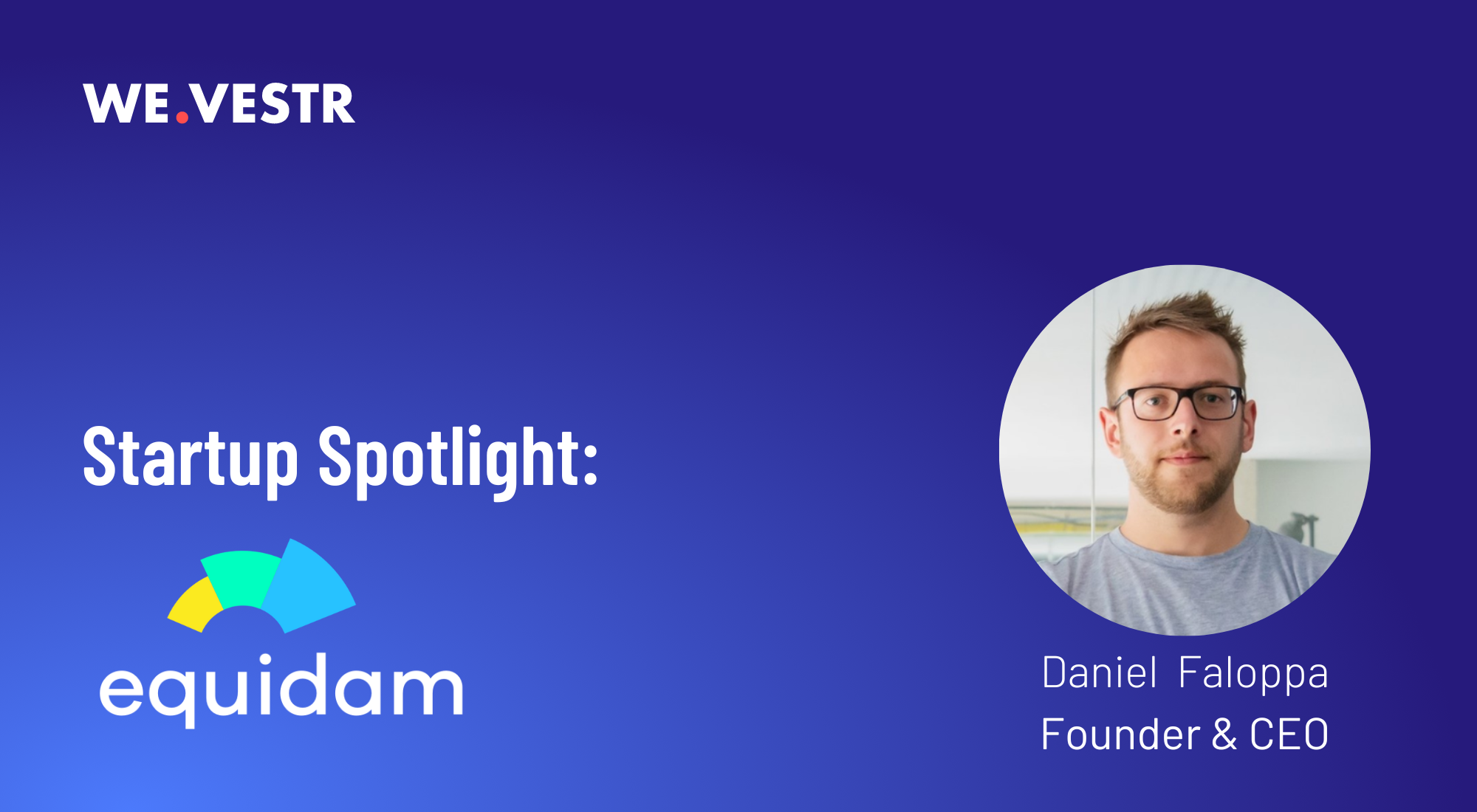Startup Spotlight: Daniel Faloppa

In our latest chat, we're thrilled to feature Daniel Faloppa, Founder & CEO of Equidam, the platform revolutionizing how startups approach valuation. Daniel has led Equidam to become a beacon for entrepreneurs worldwide, offering a sleek, data-driven solution to navigate the complex waters of business valuation and investment.
Equidam's mission is clear: a future where valuation is no longer a stumbling block for startups but a stepping stone towards growth and success.
You primarily speak to investors and founders about valuation. How important is it that employees now understand this topic, with the rise of ESOPs?
Employees’ understanding of stock options, vesting, and their compensation potential if the startup grows into a large company is critical.
The only way to create a thriving startup ecosystem and ultimately a thriving economy is to make sure that the talent developed in high growth companies is fairly compensated—and able to reinvest their expertise back into the ecosystem. This mechanic can only work through the widespread understanding and adoption of equity compensation schemes.
It is my belief that the lag in Europe’s startup ecosystem, in comparison to the US, is driven significantly by the lack of understanding, political alignment and adoption of ESOPs.
What has been learned from the fundraising and valuation turbulence of the last few years, and how that relates to ESOPs?
Much has been learned. Over the past 10 years we are seeing a refinement in how startups think about their equity and valuation. Founders, CEOs and CFOs have a better understanding of how and when to use these instruments, and their pros and cons. In the past few years we’ve directly experienced some of their cons with the very high level of valuations and “hype” on startups and startup funding.
The main con of high valuations and over-excitement around startups is the fall that inevitably comes afterwards. Employees that received ESOPs during these times likely found themselves demoralized and de-incentivised after the good period was over, exacerbating the bad times for the startup, which was already facing a negative economic outlook and added difficulties in funding.
Learning these lessons, making better use of more available data, and trying to set rigorous valuations rather than hyped ones, were the main learnings of this period and hopefully the ones that will make the next boom-and-bust cycle easier on all participants.
To what extent could a more transparent standard for valuation, like Equidam, help to remedy some of these issues?
The best way to stay objective when emotions take over, is to rely on data and rigorous analysis. What Equidam does at its core is simplify the valuation process and the data analysis by 100x. We make the data input for valuation 10x faster, and then we multiply its impact with additional data, and pre-vetted benchmark analyses to really push the ROI of a valuation exercise.
The goal here is not only to enable more transparency in startup funding and the fairer allocation of capital, but also to make it a more stable and rational environment. If we can flatten out the peaks and troughs of venture market cycles by reducing the emotional factor, everyone in the value chain will benefit.
There is no perfect solution, and it is difficult to avoid getting caught in the hype no matter the tools and the data, but we make valuation so easy to add—and so value adding—that it should be a no brainer.
As much of the startup world evolves, with better standards and greater transparency, how do you see that reflecting on fundraising specifically?
The main changes are speed and certainty. As the fundraising world develops towards standardization, every player within it benefits from clearer rules and easier to estimate outcomes. This process brings down the costs of conducting a transaction, and the lower costs, in turn, allow for transactions that before were not economically viable.
Ultimately, standardized processes allow for more and better allocated capital, fostering the growth of the best ideas, companies and entrepreneurs.
Any thoughts on the year ahead for early stage founders in Europe, who might be hoping to raise capital - or employees looking to exit their shares?
Predicting the future is incredibly difficult, especially when we see discoveries and inventions that are truly game-changing. I think overall the fundraising environment remains average, we are not in a peak status like 2021, but we are also not in a drought. We’ll see smart investors invest in the best startups, with the post-covid focus on hard metrics, traction, revenue and a track to profitability, and probably a continuation of the lower funding amounts for the more speculative ideas and startups.
When it comes to employees exiting their shares, the answer is only partially about the macro economy. The rest is about the prospects of the specific startup. As far as the macro level is concerned, I believe we’ll be in a fairly average situation for the coming 3 to 5 years before seeing further hype cycles.
What do you hope to achieve through the partnership between WE.VESTR and Equidam?
We need to make sure that ESOPs are as common as end-of-year bonuses. This is critical to talent growth and reinvestment in the startup scene. In order to do that, software, legal, and data need to come together and make transactions easy and affordable. By connecting Equidam’s valuation technology with WEVESTR’s shareholder management solution and expertise, we are making big steps towards streamlining the ESOP process.
